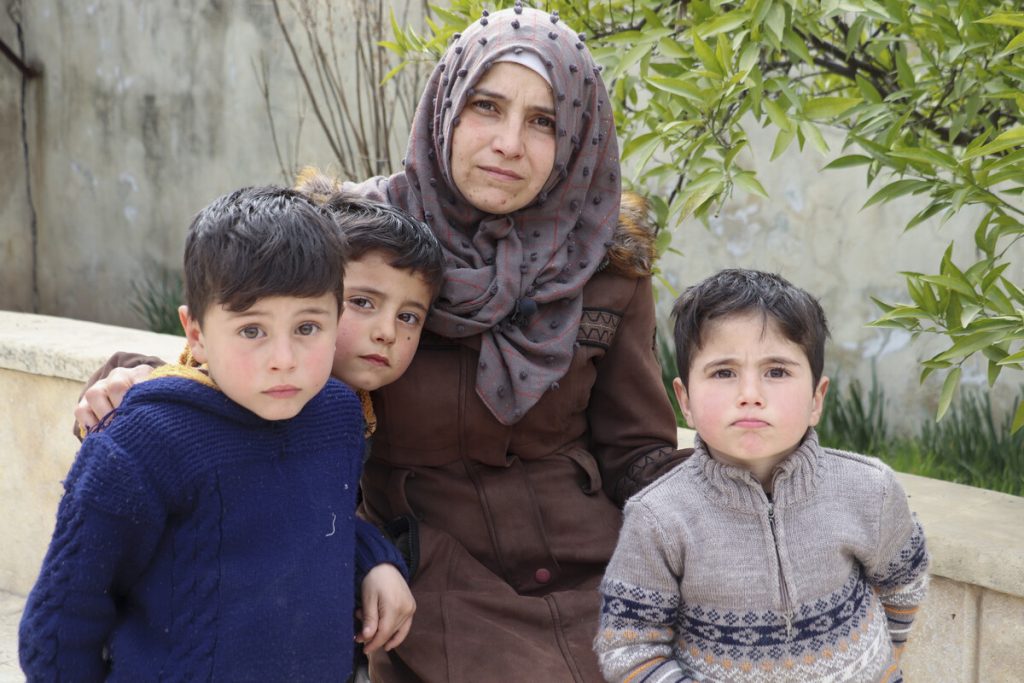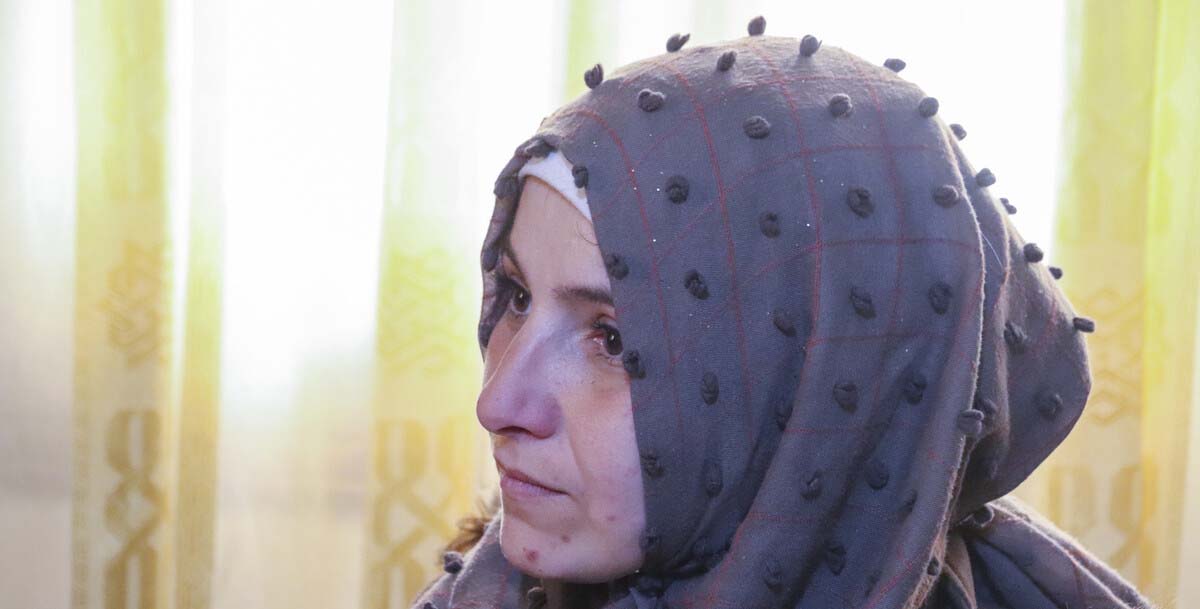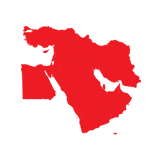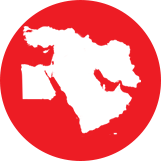Noor’s story is a powerful reminder of the importance of providing support and safe spaces for women and children during crisis situations.
As a single mother, Noor has faced numerous challenges, including being the sole caretaker of her three young children and providing for their basic needs since her husband went missing three years ago. When the recent earthquake hit near the border of Turkey and Syria, her situation became more difficult as she is now navigating the psychological trauma and fear of further attacks her children are experiencing as a result.
Noor shared with us:
“[During the earthquake], we were asleep, and suddenly we felt that the ground was shaking beneath us, and we woke up to fear, terror, and the screaming of children. The situation was very bad.
After the earthquake, we had a psychological complex, and the children no longer dared to enter the house. They became afraid of the house, and they started crying at night. They would tell me: ‘Mama, we don’t want to sleep at home. We can’t.’
I lost [my husband] about three years ago when I was pregnant with my young son. It is a difficult challenge for a woman to be alone, without a breadwinner, without a family, without anyone besides her. It’s really hard…”

Despite the challenges she faced, Noor found hope and support in a safe space run by our partner, Violet, in northwest Syria. Violet is reaching thousands of survivors in need of food, water, and shelter, in addition to providing protection services, mental health support for children and their families, and safe spaces to support women and girls experiencing trauma. In these safe spaces, Noor and her children accessed mental health services, helping them feel more comfortable and relieving trauma caused by the earthquake.
Noor, with her three boys. Photo: Sonya Al Ali Maara/ActionAid
Noor also shares that she feels like she’s at home, and the staff feels like family to her. Noor has recommended the safe space to other women in similar situations, emphasizing the excellent support and care provided by the team.
“For me, I love that women come to attend [the safe space] and experience the sessions and how the team [supports women and girls at the center]. For me, I felt good with the team [at the safe space] …because [they made me feel] comfortable and [helped relieve] the [trauma and impact] of the earthquakes. You feel at home; you feel they are like your family.”
In times of destruction, when people have lost their homes, belongings, and in some cases, their entire families, ActionAid is there to ensure the most vulnerable have access to means and services that can make a real difference in their lives. The earthquake has undoubtedly profoundly impacted people’s mental health, exacerbating an already dire situation. This is why, in addition to providing emergency aid, we focused on supporting the mental health needs of people, especially women and young people, who were impacted by the disaster.
We have been working in Syria since the 1990s and have supported Syrian refugees in Turkey for over a decade. Our decades-long work in Syria put us in the unique position of already being in-country with an infrastructure in place, enabling us to mobilize an immediate response to the disaster.
Our response efforts are always women- and young people-led, and we are prioritizing highly vulnerable groups, including refugees, female-headed households, and people with disabilities. Thank you for ensuring this work continues. Thank you for ensuring this work continues.


